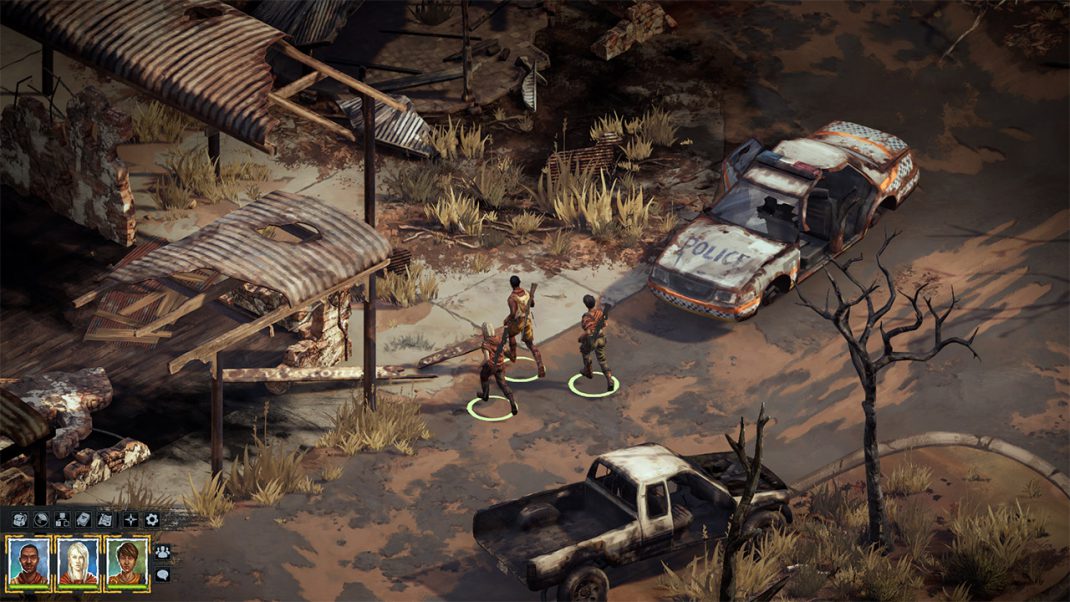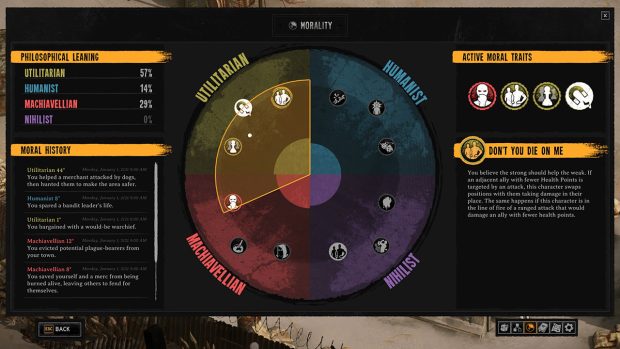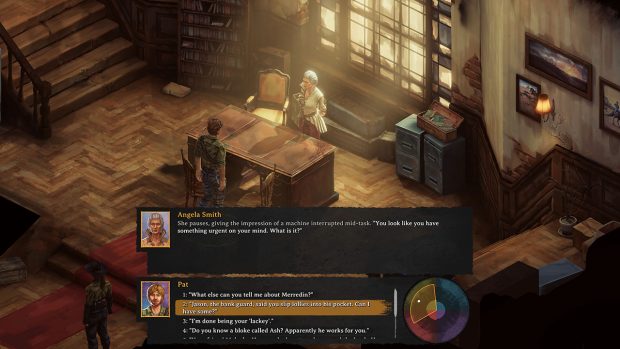Broken Roads, from the indie studio Drop Bear Bytes, is an ambitious attempt to deliver a classic-style isometric RPG experience. Set in a post-apocalyptic Western Australia, it stands out from its inspirations with a focus on philosophical introspection and a unique morality system. While it boasts moments of genuine brilliance and a strong sense of setting, some rough edges and a pacing that sometimes trips over itself hold it back from greatness.
One of the core strengths of Broken Roads is the Moral Compass system. Rather than simplistic “good or evil” paths, your character develops a core philosophy throughout the game. This philosophy consists of four main traits: Humanism, Existentialism, Machiavellianism, and Nihilism. Decisions consistently push you towards one of these, subtly and sometimes drastically altering your options and how characters react to you. It’s a welcome innovation compared to other morality systems that feel arbitrary, and it creates a real sense that you are defining the soul of your character, not just picking a path on a chart.
This system is intrinsically tied to a well-written cast. Unlike many RPG companions, they’re often deeply flawed, but in engagingly human ways. They can feel like genuine people you are meeting, with motivations and inner lives that often become entangled with your own journey. It’s here that the potential for real narrative impact starts to shine through.
Broken Roads’ setting is also a triumph. The Australian Outback has rarely been explored as a post-apocalyptic setting, and the harsh beauty of the landscape comes alive. Drop Bear Bytes has clearly done its research, weaving in genuine Aboriginal mythology, colloquialisms, and a deep understanding of the land itself. The game doesn’t shy away from the legacy of colonialism and the very real challenges still facing Indigenous Australians. This commitment to respecting the land and its people helps it stand out from the often generic wastelands seen in similar games.
But this ambition unfortunately runs into the limitations of what seems like a small indie studio, especially when it comes to mechanics and pacing. Combat is serviceable turn-based strategy but rarely rises above “just okay.” Many encounters feel rote, and the tactical element falls a bit flat compared to the intricate conversations found outside of battle. There’s potential for depth with environmental effects and cover mechanics, but they’re rarely a crucial factor in victory.
Another issue is the sometimes disjointed pacing. There’s a strong open-ended structure, which I welcome on principle, but this leads to issues where exploration can feel frustratingly aimless. The game encourages taking your time, soaking in the atmosphere, and making choices based on your gut and not just quest markers. But, while this creates a strong sense of a lived journey, there are too many stretches where it feels like the main narrative is stalling out. This makes the occasional moments of high drama hit less intensely than they should.
The visuals are also a mixed bag. Hand-drawn character art shines, giving everyone you meet a distinctive and expressive portrait. But the environments and combat maps are less detailed and can feel a touch generic at times, failing to truly bring the unique post-apocalyptic outback to life.
Should You Brave The Broken Roads?
Ultimately, Broken Roads is a diamond in the rough. It’s a flawed game, yes, but a flawed game with a beating heart and a lot to offer players thirsty for an RPG that tackles complex questions without easy answers. If you can withstand some occasionally frustrating design, you’ll be rewarded with a rich world, a unique system for character development, and writing that isn’t afraid to make you think, not just mindlessly push forward.
Fans of classic Fallout will find elements to enjoy here, but it’s a game that also stands apart. Broken Roads doesn’t fully reach the heights it clearly aims for, but it’s still a journey well worth taking for those drawn to its thoughtful approach and willingness to experiment.







